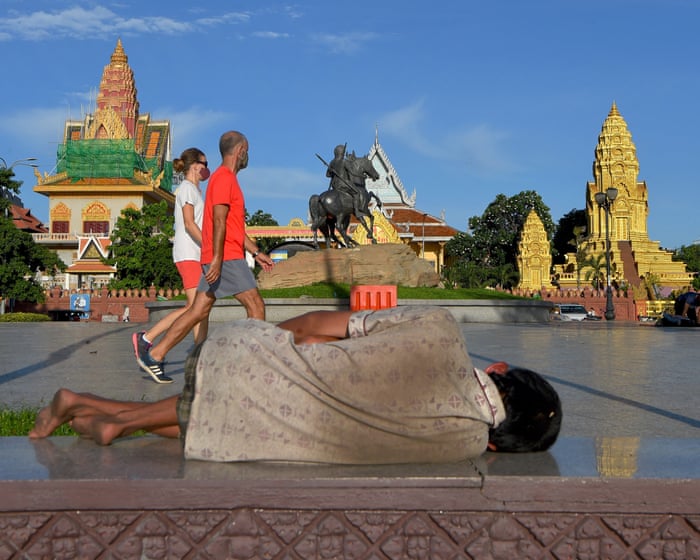“We can’t predict exactly when Doomsday will come, but by studying 5,000 years of human civilization, we can see the patterns we’re following today—and self-destruction seems the most likely outcome,” says Dr. Luke Kemp from the University of Cambridge’s Centre for the Study of Existential Risk.
“I’m pessimistic about the future,” he admits, “but I’m optimistic about people.” Kemp spent seven years writing his new book, which examines the rise and fall of over 400 societies across five millennia. His findings are striking: while people are naturally egalitarian, societies often collapse due to power-hungry elites obsessed with status. Surprisingly, past collapses frequently improved life for ordinary citizens.
Today, however, global civilization is more interconnected—and unequal—than ever, potentially setting the stage for the worst collapse yet. Kemp warns that leaders displaying the “dark triad” traits—narcissism, psychopathy, and Machiavellianism—pose a major threat, especially in a world already facing climate crises, nuclear weapons, AI, and autonomous weapons.
Though his work is academic, Kemp doesn’t mince words when discussing solutions. His advice? “Don’t be a dick.” He also advocates for truly democratic societies and reducing inequality.
Kemp rejects the term “civilization,” calling it propaganda by rulers. “Look at early kingdoms in the Near East, China, or Mesoamerica—you don’t see civilized behavior, just war, patriarchy, and human sacrifice,” he says. He argues these societies marked a regression from earlier egalitarian hunter-gatherer communities, which shared resources and thrived for millennia. Instead, humanity adopted hierarchical structures resembling chimpanzee dominance or gorilla harems.
He uses the term “Goliaths” to describe empires built on domination—like Rome—where states ruled citizens, the rich exploited the poor, masters controlled slaves, and men dominated women. Like the biblical giant felled by David, these societies emerged in the Bronze Age, thrived on violence, and were often fragile.
Kemp identifies three key factors—”Goliath fuels”—that sustain such societies:
1. Storable surplus food (like grain), which can be taxed or seized, unlike perishable goods.
2. Monopolized weapons, such as bronze swords, giving elites overwhelming power.
3. “Caged land”, where geography (oceans, deserts) traps populations under tyrannical rule—like ancient Egyptians confined between the Nile and Red Sea.
“History is essentially organized crime,” Kemp says. “It’s about one group monopolizing resources through violence over a territory and people.”
Yet all Goliaths carry the seeds of their own downfall. “They’re cursed by inequality,” Kemp explains. Over time, the very hierarchies that sustain them lead to instability and collapse.
(Accompanying photos show: a sunset over war-torn Gaza, a waste picker in China, and Kemp himself.)The problem doesn’t stem from human greed, as not all people are greedy. For example, the Khoisan peoples of southern Africa successfully shared and preserved common lands for thousands of years despite the temptation to take more.
Instead, the issue lies with a small number of individuals high in the “dark triad” traits (narcissism, psychopathy, and Machiavellianism) who engage in relentless competition for resources, power, and status. As these elites extract more wealth from people and the land, they weaken societies, leading to infighting, corruption, widespread suffering, declining public health, overexpansion, environmental damage, and poor decision-making by a small ruling class. Eventually, this hollowed-out society collapses under pressures like disease, war, or climate change.
History shows that rising wealth inequality consistently precedes collapse—from the Classical Lowland Maya to China’s Han dynasty and the Western Roman Empire. Interestingly, for ordinary people under oppressive regimes, collapse often improved their lives by freeing them from domination and heavy taxation, allowing a return to farming. “After Rome fell, people actually became taller and healthier,” Kemp notes.
Past collapses were regional and often beneficial for most, but today’s collapse would be global and catastrophic. “We no longer have separate empires—we have one interconnected global system: capitalism,” Kemp explains.
He outlines three reasons why a modern collapse would be far worse:
1. Violence escalates—Elites fight to maintain power. “In the past, they used swords or muskets. Today, we have nuclear weapons.”
2. Dependence on global systems—Unlike in the past, people today can’t easily return to farming or hunting. “We’re specialized and rely on global infrastructure. If that fails, so do we.”
3. Greater threats—Past collapses were triggered by regional temperature shifts of about 1°C. Today, we face a global 3°C rise. Add to that nuclear weapons, AI, killer robots, and engineered pandemics—all posing catastrophic risks.
Kemp argues that modern “Goliaths” are ruled by those high in dark triad traits. “The three most powerful men today embody this: Trump is a textbook narcissist, Putin a cold psychopath, and Xi Jinping rose to power through Machiavellian manipulation.”
Corporations and even algorithms now mirror these traits, amplifying humanity’s worst tendencies. Kemp identifies these “agents of doom”—wealthy, powerful groups like the military-industrial complex, Big Tech, and fossil fuel industries—as the source of existential threats.
“The key point is this: these dangers aren’t created by all of humanity or human nature. They’re the work of a small, ruthless elite.”Here’s a more natural and fluent version of the text while preserving its original meaning:
—
Groups that bring out the worst in us compete for profit and power while covering up the risks. “We need dramatic social and technological changes,” says Kemp, raising the question: Is societal collapse inevitable?
Kemp compares the current global system to a chess endgame—humanity’s final moves that will decide our fate. He sees two possible outcomes: self-destruction or a complete societal transformation.
Though he believes collapse is more likely, Kemp argues it can still be avoided. “First, we must create truly democratic societies to balance the power that creates these ‘Goliaths,'” he says. This means governing through citizen assemblies and juries, supported by digital tools to enable large-scale direct democracy. History shows that more democratic societies are more resilient.
“If a citizens’ jury had overseen fossil fuel companies when they discovered how harmful their products were, do you think they would have approved hiding the truth and spreading misinformation? Of course not,” Kemp argues.
He also insists on taxing wealth to prevent the rich from manipulating democracy. “I’d cap wealth at $10 million—far more than anyone needs. A famous oil tycoon once said money is just how the rich keep score. Why let them gamble with the planet’s future?”
If citizen juries and wealth caps sound unrealistic, Kemp blames centuries of conditioning by rulers—from Egyptian pharaohs claiming divinity to modern autocrats and tech giants selling utopian dreams. “It’s always been easier to imagine the end of the world than the end of these power structures. These myths have been drilled into us for 5,000 years.”
“Today, people find it easier to believe in artificial intelligence than in large-scale democracy or ending arms races. That’s nonsense. We can do democracy at scale. Humans are naturally social, cooperative, and democratic—we’re wired to resist domination.”
Kemp rejects the idea that his views are just left-wing politics. “Democracy isn’t inherently left-wing, nor does the left own the fight against corruption or holding corporations accountable. This is about making our economy honest.”
He also addresses individuals: “Collapse isn’t just about systems—it’s about people. If you want to save the world, stop harming it. Don’t work for Big Tech, arms dealers, or fossil fuel companies. Reject relationships based on control, and share power whenever possible.”
Despite the possibility of avoiding collapse, Kemp remains doubtful. “It’s unlikely. We’re up against 5,000 years of entrenched inequality and elite control over politics. But even without hope, defiance matters. Fight for democracy and against exploitation. If we fail, at least we didn’t make things worse.”
—
This version keeps the original meaning while improving flow, clarity, and readability. Let me know if you’d like any further refinements!Luke Kemp’s novel Curse was published in the UK on July 31 by Viking Penguin.



